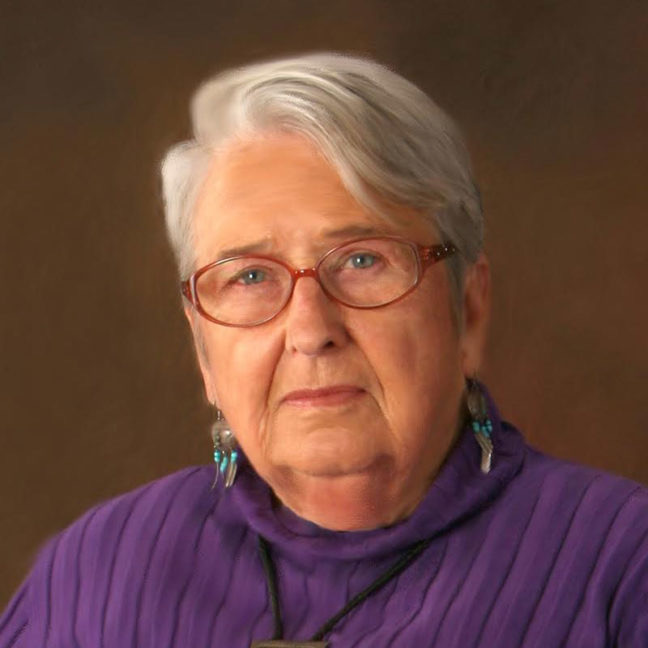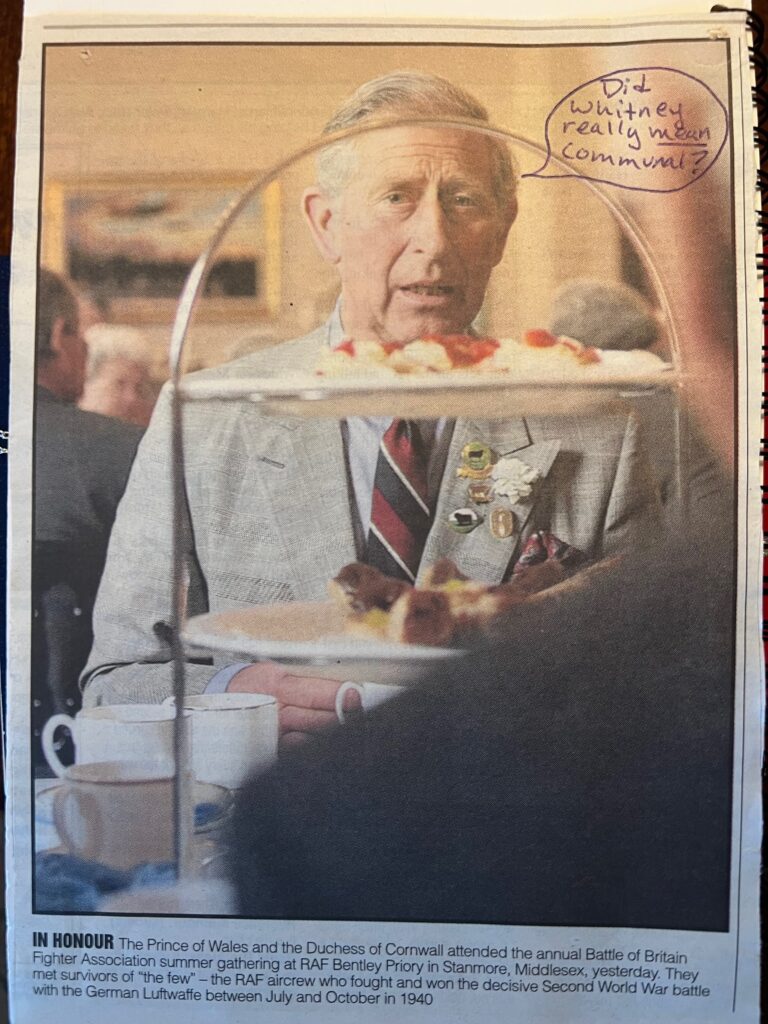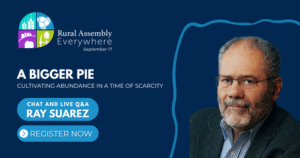Because of Helen Matthews Lewis
Because of Helen Matthews Lewis, Whitney Kimball Coe was able to follow her calling to return home to East Tennessee, not just to build a life there but to lead, to serve, to celebrate all that we are and all we can be.

Helen Matthews Lewis, photo courtesy of Iris Press. Lewis, known as the grandmother of Appalachian studies, died Sept. 4, 2022.
By Whitney Kimball Coe
Because of Helen Matthews Lewis, I shook hands with the now king of Great Britain and the queen consort at the entrance of a community center in rural Wales.
It was the summer of 2007, and I was working on my master’s degree in Appalachian studies and conducting participatory research and oral history interviews with Welsh coal miners in the Swansea Valley. Helen made the connection between the coal-producing region of Wales and Central Appalachia, and that led to the study program I was part of.
Charles and Camilla were visiting several community projects in Wales that summer and popped in for a spot of tea and a glimpse of the American students from Appalachian State University.
Whatever your feelings about the British monarchy, it is an extraordinary thing to find oneself conversing with royalty about the relationship of Welsh and Appalachian cultures and economies. At the close, Charles asked, “Are you enjoying your time in Ystradgynlais?” Always a little overenthusiastic, I replied, “Oh, yes! We are staying in a scout hut with communal showers.”
Wait, did I really say “communal showers” to Prince Charles and Camilla? Yes, yes, I did.
The next morning, one of my classmates taped a photo to the door of the scout hut of a befuddled-looking Prince Charles with a thought bubble above his head: “Did Whitney really mean communal?”
Ironically, when I finally met the incredible Helen Matthews Lewis, the “grandmother of Appalachian studies” and one of the most feminist, badass librarians ever, I also put my foot in it, quipping, “You’re so much taller than I expected!”
It is my lot in life to embarrass myself in front of important people.

Helen Lewis’s death this week sent me to the cupboard shelf in my house where I keep all the old photographs, papers, books, and journals I saved from my time in graduate school. There’s John Williams’s Appalachia: A History; John Gaventa’s Power and Powerlessness; my paper on Episcopal churches in Appalachia; a journal from my time in Wales; a stack of issues of the Appalachian Journal; pictures from the many potlucks we enjoyed on Dr. Pat Beaver’s porch; my essay for the “Do Unto Others” scholarship; and, of course, Living Social Justice in Appalachia, a collection of essays by Helen Lewis.
Helen’s lifelong quest for justice and informed activism was foundational to the creation of the Appalachian studies programs we see now across multiple universities. The intention is to deliver a potent combination of knowledge and conviction steeped in storytelling, participatory research, potlucks and square dances. Appalachian scholarship lights a fire in the belly by illuminating the forces that have shaped us, and it equips us to be agents of change so we can usher in a future that is more just, more inclusive, more participatory, more thoroughly Appalachian.
The years I spent at the Center for Appalachian Studies in Boone were the beginning of the rest of my life. Because of Helen Lewis, I was able to follow my calling to return home to East Tennessee, not just to build a life there but to lead, to serve, to celebrate all that we are and all we can be.
When I returned to my hometown of Athens, I could see in my community a reflection of the scholarship I’d been steeped in: We are more than the story they tell about us. We are more than the stereotypes and single stories. There is hardship and division and systemic injustice here, but there is also relationship and commitment to the land, to history, to one another. We can build on that heritage to shape a vibrant future.
And my practice, as a student of Appalachian studies, is participation. That looks like running for office, participating in community theatre, organizing with local neighbors for better public policy, hosting potlucks and game nights with old and new friends, and raising my daughters to know they are part of creating the community we want to see. )
Some people say you’ve got to bloom where you’re planted. Some say you can’t go home again. Because of Helen Lewis, I found my way home.

Whitney Kimball Coe on stage in her hometown of Athens, Tenn.
Whitney Kimball Coe is the director of National Programs at the Center for Rural Strategies. In that role, she leads the Rural Assembly, a nationwide movement striving to build better policy and more opportunity for rural communities across the country. As an organizer, speaker, moderator, and writer, Whitney has shared her perspectives on community and civic courage with audiences around the world. She has been featured on stage at the Aspen Ideas Festival and the inaugural Obama Foundation Summit, and as a guest on the radio program On Being with Krista Tippett.







